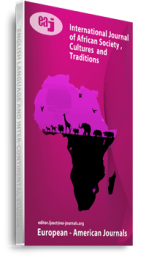New idioms and idiomatic expressions, which are modern stock expressions, constitute communicative clogs in Yorùbá routine discourses because of their semantic complexity and deviant nature. Existing studies have established their scope of usage in Yorùbá music but have hardly addressed their communicative adaptability in politics. This paper investigated issues expressed with these idioms, context and strategies for using them in political arena. This is with a view to establishing their communicative and stylistic relevance in Yorùbá discourses. The paper adopted Mukarovsky’s theory of Standard Language because of its capacity to explain the “differential specifica” between the language of everyday interaction and literary language. Data were collected from different routine communicative discourses of politicians and party members on radio, during political rallies or campaigns and were subjected to pragmatic and stylistic analysis. Political issues were expressed using new idioms and idiomatic expressions in the following sociopolitical contexts: Eté for corruption/stealing; Ojúyọbọ́ for under achiever; Yóó wọlé ẹ̀ẹ̀ken si for deceit; Ó bọ̀jẹ́ tì for collective support; Oyin ni o for a successful tenure; Ajímọ̀bi for collective responsibility; Nàìjá for affection/disappointment and Kárí go/Kárí kọọ̀mù for continuity and discontinuity. Nominalisation, Pidginisation and dialect expressions were the strategies employed for the formation of new idioms in this paper. These strategies were used to express different political happenings contextualized in underachievement, sloganeering for support, deceit, and acceptance/rejection for second term in office respectively. New idioms and idiomatic expressions, used to express sociopolitical issues in Yorùbá routine communication, occurred in mediated and non-mediated contexts and were conveyed through nominalization, pidginisation, and dialect expressions. These idioms reflect dynamism and modernity-constrained stylistic choices in Yorùbá.
Keywords: New Idioms, Politics Stylistics, Strategies., Yoruba

